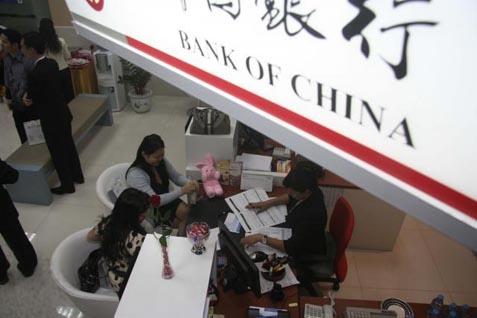China banking regulator urges probes on iron ore financing
Trade sources said Chinese banks have started to tighten loan requirements for steel mills

Trade sources said Chinese banks have started to tighten loan requirements for steel mills
Bareksa.com - China's banking regulator has urged local authorities and banks to step up an investigation into iron ore financing deals in a bid to minimize default risks, prompting a sell-off in iron ore futures that saw prices fall nearly five percent.
The probe, confirmed to Reuters by sources with direct knowledge of the matter, raised fears that the crackdown on commodities-backed financing could unleash a flood of iron ore sales from 100 million tonnes-plus of stocks sitting at Chinese ports, raising the prospect of a price slump.
A China Banking Regulatory Commission (CBRC) spokesman declined to comment.
Promo Terbaru di Bareksa
In a document issued on April 18, the commission told local regulators and banks to start investigating iron ore financing and to submit detailed reports by April 30.
"Local offices must step up measures to manage risks arising from commodities trade financing and to assess the risks presented by iron ore financing," the CBRC said, adding that regulators should also check if firms were logging fake trades to secure financing.
Trade sources said Chinese banks have started to tighten loan requirements for steel mills and trading firms seeking credit for iron ore imports.
"The thing we've been hearing from traders is the margin on the letters of credit has gone up quite sharply over the last week - it used to be 10-20 percent and now is 40-50 percent, and that seems seems to be forcing a bit of liquidation (to cover the margin call)," said Graeme Train, an analyst at Macquarie Commodities Research in Shanghai.
Although Chinese banks have been gradually cutting back on loans to the steel sector since late last year, many private mills saw their lines of credit either suddenly cut off or slashed at the start of the year.
While the credit crunch has caused some floundering mills to shut, others stepped up iron ore imports as a way to get trade financing, which was more easily available and offered at a lower interest rate. They would then sell the raw material in the domestic spot market to raise cash.
The scramble for credit, via the use of iron ore imports, caused imports in the first quarter of 2014 to surge about 20 percent from a year ago and inflated stockpiles at Chinese ports to an all-time high.
Iron ore port stocks stood at above 108 million tonnes in early April, enough to build almost 1,200 New York Empire State buildings.
News of the probe caused the benchmark iron ore contract for September delivery on the Dalian Commodity Exchange to close down 4.5 percent, its biggest daily fall since the contract was launched in October 2013.
Spot prices also fell, with a cargo of Australian iron ore fines sold at $107 a tonne on Monday, down $3 from last Thursday, traders said.
RISKS TO ECONOMY
Commodities such as copper, rubber and soybeans have been commonly used for financing, where traders or investors borrow against the commodity with the aim of investing the money in high-return areas in real estate or shadow banking.
As the financial noose on private mills and traders tightens, some state-owned firms that enjoy easy bank credit and are eager to keep profits ticking over in a cooling economy, have stepped in to fill the lending void.
To avoid unwanted attraction from regulators, many of them have offered credit facilities under the guise of trading.
"Some banks are cutting new credit to us this year, but some have given us more. So we finance companies by helping them to purchase raw materials and then charging them an interest," said a senior official with a state-owned trading firm, who spoke on the condition of anonymity due to the sensitivity of the topic.
Some private companies are also cashing in.
A senior executive from a major environmental rehabilitation company said his firm was also extending loans to smaller companies through the sale of coal and iron ore shipments.
"The coal or iron ore may not be sold in the end but we use the trades on paper to justify the loan and interest rates charged," said the executive, who declined to be named.
Interest rates charged could range from 9 percent to 15 percent, compared with an official rate of 6 percent that many state firms enjoy, industry sources said.
Apart from adding systematic risks to the broader economy, the participation of SOEs in shadow banking is complicating China's efforts to curb overcapacity in a slew of sectors. (Source : Reuters)
Pilihan Investasi di Bareksa
Klik produk untuk lihat lebih detail.
| Produk Eksklusif | Harga/Unit | 1 Bulan | 6 Bulan | YTD | 1 Tahun | 3 Tahun | 5 Tahun |
|---|---|---|---|---|---|---|---|
Trimegah Dana Obligasi Nusantara autodebet | 1.210,58 | ||||||
STAR Stable Amanah Sukuk autodebet | 1.190,48 | - | - | ||||
Syailendra Sharia Fixed Income Fund Kelas A | 1.162,65 | - | - | ||||
Eastspring Syariah Mixed Asset Fund Kelas A | 1.048,49 | - | - | - | - |

Produk Belum Tersedia
Ayo daftar Bareksa SBN sekarang untuk bertransaksi ketika periode pembelian dibuka.
